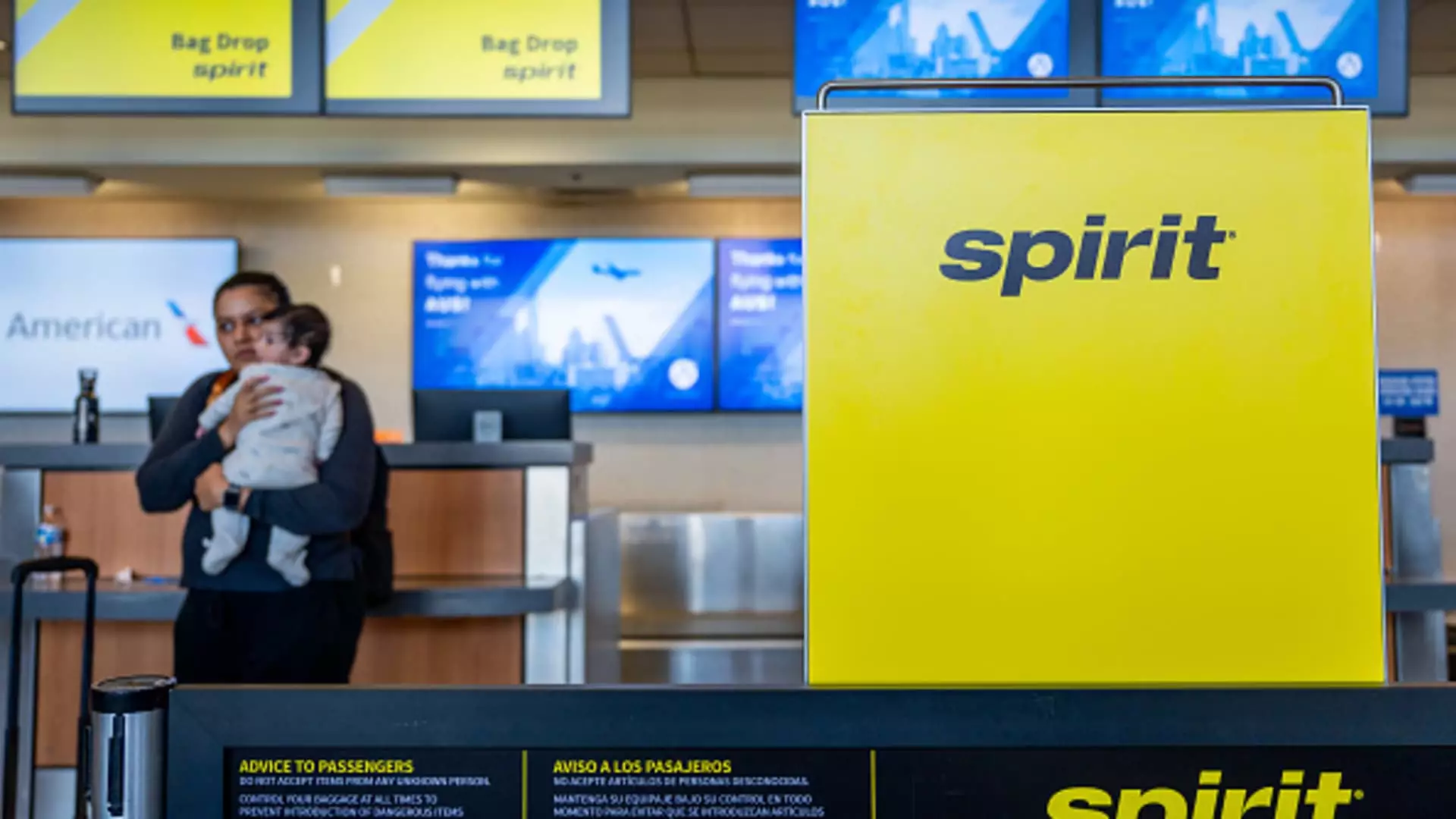Chapter 11 bankruptcy might sound like an impending doom for many companies, but for Spirit Airlines, it marks a turning point rather than a terminus. As the first significant U.S. airline to file for bankruptcy protection since American Airlines did so over a decade ago, Spirit’s decision underscores a narrative of financial struggles exacerbated by the COVID-19 pandemic, rapidly increasing costs, and a complex web of corporate developments affecting its operational viability. For passengers, this move raises immediate questions about flight reliability, ticket validity, and refund protocols—issues that need comprehensive examination and understanding.
Spirit Airlines’ financial health had been in decline since 2019, but the domino effect of the pandemic significantly amplified its challenges. Airline operations generally grapple with fluctuating market demands, and Spirit was not spared. Increasing operational costs, compounded by an engine recall that necessitated grounding a considerable portion of its Airbus fleet, became a considerable setback. Furthermore, a federal court’s blockage of its merger plans with JetBlue Airways not only added to its fiscal strain but also left the carrier with limited restructuring options. These factors tragically converged to tighten the noose around Spirit’s finances, leading to a monumental reckoning as it faced the unmanageable burden of $1.1 billion in imminent debt payments.
In response to this mounting pressure, Spirit has initiated a prearranged Chapter 11 plan that aims at reorganization. This process provides a crucial shield against creditors, allowing the airline to streamline its operations and focus on efficient recovery strategies while maintaining necessary liquidity. CEO Ted Christie has sought to reassure customers that operations will continue as the airline navigates this restructuring phase. Despite the grim financial landscape, Spirit is committed to maintaining its services during the peak holiday travel season—a crucial revenue-generating period.
For travelers, Spirit’s bankruptcy raises fundamental questions about existing bookings and travel reliability. Customers maintaining reservations during this period need to stay informed regarding changes to flight schedules or possible cuts in operational capacity—a situation wherein some planes and staff might face layoffs. Experts like Henry Harteveldt have pointed out that although Spirit aims to keep its flight schedules intact throughout the festive season, subsequent adjustments are very likely. This uncertainty can be disconcerting for passengers relying on Spirit for their travel plans.
Complications may arise around refund policies as well. Under U.S. regulations, travelers typically have the right to cash refunds if their flight is canceled without the option of being rebooked. However, the Department of Transportation (DOT) cautions that bankruptcy might complicate refund procedures temporarily. Should Spirit become unwilling or unable to issue refunds, passengers may still have options through their credit card providers, which can invoke the Fair Credit Billing Act. Nevertheless, acquiring a replacement ticket in such circumstances could induce additional financial burdens due to heightened demand and diminished seating availability.
Looking Beyond: Future Strategies and Market Dynamics
Spirit Airlines is not alone in its tumultuous voyage; it is navigating within a volatile airline industry landscape that has seen companies of all scales adapting to post-pandemic realities. While Spirit eyes an exit from Chapter 11 by the early 2025 timeframe, it may emerge transformed, with a leaner operational structure capable of long-term sustainability and competitiveness in the budget airline sector.
Given the present context, other airlines may capitalize on Spirit’s restructuring, possibly acquiring assets to enrich their own fleets amid an industry-wide crunch of available aircraft. The proposed merger negotiations between Spirit and Frontier may regain traction following this bankruptcy proceeding, particularly as external regulatory conditions might shift favorable to such consolidations.
While Spirit Airlines’ Chapter 11 filing casts a long shadow over its operations, it simultaneously opens a window into potential recovery and reimagined growth. If executed successfully, Spirit’s restructuring efforts may renew its standing in the budget airline market, albeit dependent on diligent management of both flights and customer relations during its turbulent transition. As travelers, staying informed and prepared will be essential, offering resilience in a world where the skies remain unpredictable.


Leave a Reply